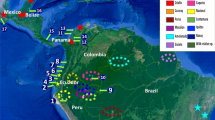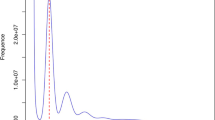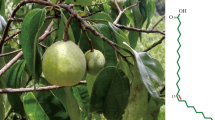Abstract
Knight and Rogers1 found five incompatibility alleles in the Theobroma cacao clones Parinari 7 (alleles 1 and 5), Parinari 35 (3 and 5), and Nanay 32 (2 and 4). Allele 1 is dominant to the others; alleles 2 and 3 are independent but are dominant to allele 4, which in turn is dominant to allele 5. A tree is incompatible both as male and female with another which has the same dominant allele; a tree carrying two independent alleles is incompatible with trees carrying either in the absence of others dominant to them.
This is a preview of subscription content, access via your institution
Access options
Subscribe to this journal
Receive 51 print issues and online access
$199.00 per year
only $3.90 per issue
Buy this article
- Purchase on SpringerLink
- Instant access to full article PDF
Prices may be subject to local taxes which are calculated during checkout
Similar content being viewed by others
References
Knight, R., and Rogers, H. H., Heredity, 9, 69 (1955).
Cope, F. W., Heredity, 17, 157 (1962).
Glendinning, D. R., Rep. Cocoa Res. Inst., Ghana, 1963–65, 75 (1966).
Voelcker, O. J., Seventh Rep. Cacao Res. (Trinidad), 9 (1938).
Author information
Authors and Affiliations
Rights and permissions
About this article
Cite this article
GLENDINNING, D. Incompatibility Alleles of Cocoa. Nature 213, 306 (1967). https://doi.org/10.1038/213306a0
Received:
Issue date:
DOI: https://doi.org/10.1038/213306a0



